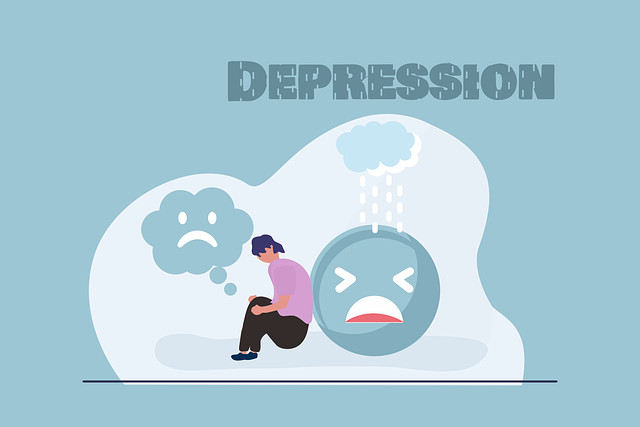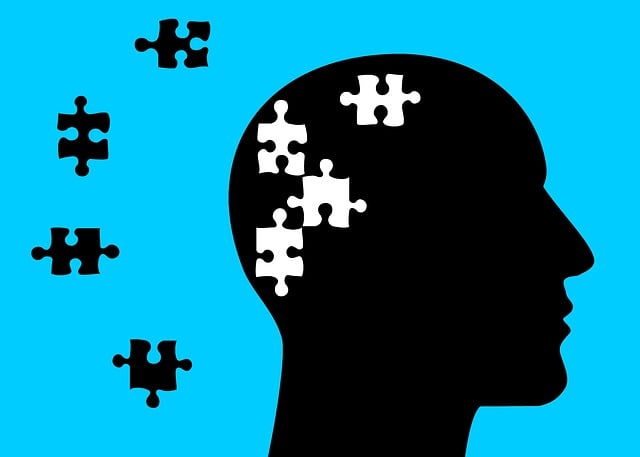Emotional intelligence (EI) is crucial for well-being and healthy relationships, especially in challenging environments like Colorado Springs drug abuse-substance abuse therapy. High EI individuals effectively manage their emotions, improving self-esteem, mood, and preventing burnout among therapists and clients. In Colorado Springs therapy settings, strong EI fosters understanding and compassion between therapists and clients, leading to better treatment outcomes and long-term recovery. Recognizing low EQ can enhance intervention effectiveness, as indicated by difficulties in self-awareness, emotional regulation, empathy, and impulsive behavior. Programs focus on strengthening these areas through mindfulness, self-reflection, and community outreach, reducing substance abuse risk factors. Incorporating EI into daily routines helps individuals navigate challenges, foster healthier relationships, make better decisions, and improve resilience, aiding in recovery from addiction and preventing depression.
Emotional intelligence (EI) is a powerful tool for personal growth and well-being, impacting every aspect of our lives. In this comprehensive guide, we explore EI’s profound effects on mental health and its role in overcoming challenges like substance abuse in Colorado Springs. We’ll help you recognize signs of low EI, offering practical strategies to enhance it daily. From understanding EI’s impact to discovering the transformative power of therapy and training, this article provides valuable insights for a healthier, more resilient future.
- Understanding Emotional Intelligence and its Impact on Well-being
- Recognizing Signs of Low Emotional Intelligence in Individuals
- Strategies for Enhancing Emotional Intelligence in Daily Life
- The Role of Substance Abuse Therapy in Developing Emotional Intelligence in Colorado Springs
- Building Resiliency and Healthy Coping Mechanisms through Emotional Intelligence Training
Understanding Emotional Intelligence and its Impact on Well-being

Emotional intelligence (EI) is a powerful tool for enhancing well-being and fostering healthy relationships, especially in challenging environments like Colorado Springs drug abuse-substance abuse therapy settings. Beyond academic or professional skills, EI involves recognizing, understanding, managing, and effectively utilizing emotions to navigate life’s complexities. Individuals with high emotional intelligence are adept at regulating their own moods, empathizing with others, and building strong connections—all crucial factors in recovery and preventing burnout among therapists and individuals seeking treatment for substance abuse.
By developing emotional intelligence, one can significantly improve self-esteem and enhance mood management skills. This is particularly relevant in the context of Burnout Prevention, where maintaining a healthy balance between work and personal life is essential. In Colorado Springs drug abuse-substance abuse therapy, high EI facilitates deeper connections between therapists and clients, promoting understanding, compassion, and effective communication—all vital elements for successful treatment outcomes and long-term recovery.
Recognizing Signs of Low Emotional Intelligence in Individuals

Emotional intelligence (EQ) is a vital skill that plays a significant role in our personal and professional lives. However, recognizing when someone may be lacking in EQ can be crucial for providing support or guiding them towards appropriate help. In Colorado Springs, where substance abuse therapy and drug rehabilitation programs are readily available, understanding low emotional intelligence signs can contribute to more effective interventions.
Individually exhibiting a lack of self-awareness, difficulty managing emotions, challenges in empathy and social skills, or a tendency towards impulsive behavior could indicate lower EQ. Burnout prevention strategies and crisis intervention guidance often focus on enhancing these areas. Moreover, community outreach program implementations that target emotional intelligence development can play a significant role in fostering healthier environments and relationships, ultimately reducing the risk factors associated with substance abuse and promoting overall well-being.
Strategies for Enhancing Emotional Intelligence in Daily Life

Incorporating emotional intelligence into your daily routine is a powerful tool for navigating life’s challenges, especially when coupled with effective coping skills development. Colorado Springs drug abuse-substance abuse therapy programs recognize the profound impact of emotional literacy on recovery and mental wellness. By understanding and managing emotions, individuals can foster healthier relationships, make more thoughtful decisions, and improve overall resilience. Simple yet effective strategies include practicing mindfulness, engaging in regular self-reflection, and seeking out support from peers or professionals when needed.
These practices encourage individuals to develop a deeper awareness of their emotional triggers and responses, thereby enhancing their ability to cope with stress and regulate their emotions. This proactive approach not only benefits those in recovery but also plays a pivotal role in depression prevention by equipping individuals with the tools to recognize and address emotional shifts early on. Prioritizing mental wellness through these means paves the way for a more balanced and fulfilling life.
The Role of Substance Abuse Therapy in Developing Emotional Intelligence in Colorado Springs

In Colorado Springs, substance abuse therapy plays a pivotal role in fostering emotional intelligence. This therapeutic approach goes beyond addressing addiction; it’s designed to help individuals understand and manage their emotions effectively. Through tailored guidance and support, therapists assist clients in navigating complex emotional landscapes, promoting self-awareness, and enhancing empathy towards others. By incorporating mental wellness journaling exercises into the therapy process, patients are encouraged to reflect on their feelings, track progress, and develop healthier coping mechanisms.
The emotional healing processes within substance abuse therapy in Colorado Springs aim to strengthen emotional intelligence by teaching practical skills for recognizing and responding to emotions. This includes learning to identify triggers, managing stress, and cultivating resilience. Such comprehensive care not only aids in overcoming addiction but also equips individuals with the tools necessary to build and maintain lasting relationships, succeed in personal and professional endeavors, and contribute positively to their communities.
Building Resiliency and Healthy Coping Mechanisms through Emotional Intelligence Training

Emotional intelligence training plays a pivotal role in building resiliency and healthy coping mechanisms, especially for individuals dealing with issues like Colorado Springs drug abuse-substance abuse therapy. By learning to recognize and manage their emotions effectively, individuals can navigate challenging situations with greater ease. This proactive approach not only fosters mental wellness but also strengthens the ability to withstand and recover from adverse events, a crucial component of trauma support services.
Through engaging in such training, participants develop skills that enable them to process and express emotions healthily, leading to improved emotional regulation. This, in turn, enhances their overall mental wellness and equips them with effective coping strategies. The impact extends beyond personal growth; it can positively influence interpersonal relationships and job performance, making emotional intelligence a valuable asset in various aspects of life, including the production of Mental Wellness Podcast Series.
Emotional intelligence (EI) is a powerful tool for enhancing well-being and resilience. By recognizing signs of low EI, individuals can implement strategies to improve their emotional awareness and regulation daily. Substance abuse therapy in Colorado Springs offers specialized support for those struggling with addiction, providing an opportunity to develop EI skills through tailored training. This comprehensive approach addresses the root causes of addiction while fostering healthy coping mechanisms, ultimately transforming lives and breaking down the barriers of substance abuse.














